Where I reflect back over this weeks two events, the first of our safe-to-fail ‘experimental’ initiative Land Skills for Wellness and Sustainability introducing crafts, skills and nature based learning to students, faculty and staff at UWaterloo for wellness and sustainability benefits. With a bit of complexity and flow theory thrown in.
Connecting to the Land
On Monday evening we had planned our first official event for the Land Skills for Wellness and Sustainability Workshops at UW, a gathering for potential workshop participants called Connecting To The Land.
Steffanie (Prof Steffanie Scott, UWaterloo GEM) and I were hosts for the event. We set up on a beautifully warm and sunny afternoon under a blue market tent at the edge of Laurel Lake near the Environment Buildings on Campus. The nearby stand of mature maples, white pines, hawthorns and beech trees afforded a rich soundscape of bickering squirrels and a songful bird chorus. The Lake was much reduced, with only the original channel of Laurel Creek on the west side of the lake still flowing1 .
While we had planned to start promptly at 5pm, participants arrived in a leisurely manner, so we enjoyed getting to know people as they turned up, building to a small but delightfully intimate gathering. We started naturally with an acknowledgement and gratitude for the privilege of being alive on this land from our perspective of settlers. The University of Waterloo is of course on land traditional territory of the Neutral, Anishinaabeg and Haudenosaunee peoples. and is situated on the Haldimand Tract, the land granted to the Six Nations that includes six miles on each side of the Grand River.
The plan for the workshop had been to take participants on a journey from the place where most academics, staff and students find themselves at the end of the day, likely in a place where much of their focus was inward, task-oriented and cerebral, to a place where they reconnected with their body and senses to the natural world around Laurel Lake.
So while we had thought to start with an introduction to our own interests in Connecting to the Land from ‘Land as Teacher’ pedagogy and Sustainable Livelihoods respectively (more about that coming soon) before reflecting in our journals about where we found ourselves physically, mentally and emotionally as we sat in our chairs. We would then do two exercises to connect ourselves together-mind and body- and to shift attention and focus to something in the natural world- a flower or birdsong perhaps. We would then reflect again on where we found ourselves, paying particular attention to any shifts in our awareness.
But the session found its own rhythm! The spontaneous nature of arrival led to rounds of conversation and in the end we had time for one exercise-barefoot walking- between the two reflective moments.
Safe to fail experiments in complexity
Readers of my blog will know of my interest in complexity in social-ecological systems and particularly the Cynefin Framework which offers a practice when we find ourselves working in complexity where there are no linear relationship between cause and effect, outcomes are impossible to predict and surprises are to be expected. The LSWS initiative is a safe-to-fail experiment within this framework where we are using the probe-sense-respond practice. This workshop was a probe of the system, and we were met with a collection of stories from participants which will allow us together to make more sense of the system before responding-with another probe. This iterative mode of working takes place not toward a goal driven outcome, because goals are unreachable in complex systems, but instead we are navigating in a particular direction.
My PhD research is an inductive exploration of narratives of land-based livelihoods. I’m interested in the role that attention plays in narrative formation and whether shifting attention and thus patterns of narratives plays a role in transformations towards sustainability. The Anthropocene Polycrises calls for limits to growth so I’m broadly exploring what re-learning land-based crafts and skills might mean for embodied cognition in the context of Inner Development Goals and behavioural limits.
Spoon carving
On Tuesday we held our first skills event, the Introduction to Spoon Carving workshop. I say first, but I did hold it on May 16th and only Devon showed up! We agreed to postpone until 30th and she bought her friend Sara with her to find five other new friends: Carla and Meredith, Shelly, Morgan and Pankaj.
Three hours spent learning the basics for spoon carving followed where attendees learned first a respect and gratitude for trees as one of our many relatives and wood as gift to be treasured. The anthropologist Tim Ingold speaks of craft as
“an act where sentient practitioners and active materials continually answer to, or ‘correspond’, with one another in the generation of form”
Ingold, T. (2013). Making: Anthropology, Archaeology, Art and Architecture. Routledge.
Our correspondence in this workshop was with the American Basswood tree, Tilia amercana also called in my country of origin, the Lime or Linden. Its creamy-white wood is perfect for beginners being relatively easy to carve. I had just taken delivery of new S17 spoon carving sets from Beavercraft so the group also had the luxury of new tools! With a little guidance on safe use and the key carving techniques, the blanks quickly started to shape up, towards becoming ‘Kayak’-style spoons, with each carver approaching the work in their own way, and each spoon blank speaking back to them about its own journey.
You lose a sense of time when you are crafting, entering what Mihaly Csikszentmihalyi identified as a Flow State. Amy Isham and Tim Jackson at the University of Surrey’s Centre for the Understanding of Sustainable Prosperity (CUSP) argue that flow states may be important for sustainability as an antidote to consumption. New carvers however need to be reminded to take a break, so we frequently put down our tools, stretched and looked around at our beautiful surroundings. The conversation was always flowing, and as a researcher interested in narratives I wish I could have recorded the whole session ( ididnt have ethics clearance !)
We have two more Spoon Carving sessions this semester but many other crafting and nature based events happening. You can find out all the details over at the Land Skills for Wellness and Sustainability website.
The LSWS initiative is funded by UWaterloo Sustainability Action Fund for this semester and but we are actively looking for more funding to continue in the fall. We will be writing more about the project in due course but if you would like to know more about the project please contact me or Prof Steffanie Scott.
- My experience in river restoration wants to urge UWaterloo and GRCA to take Laurel Lake offline and restore the original River Channel
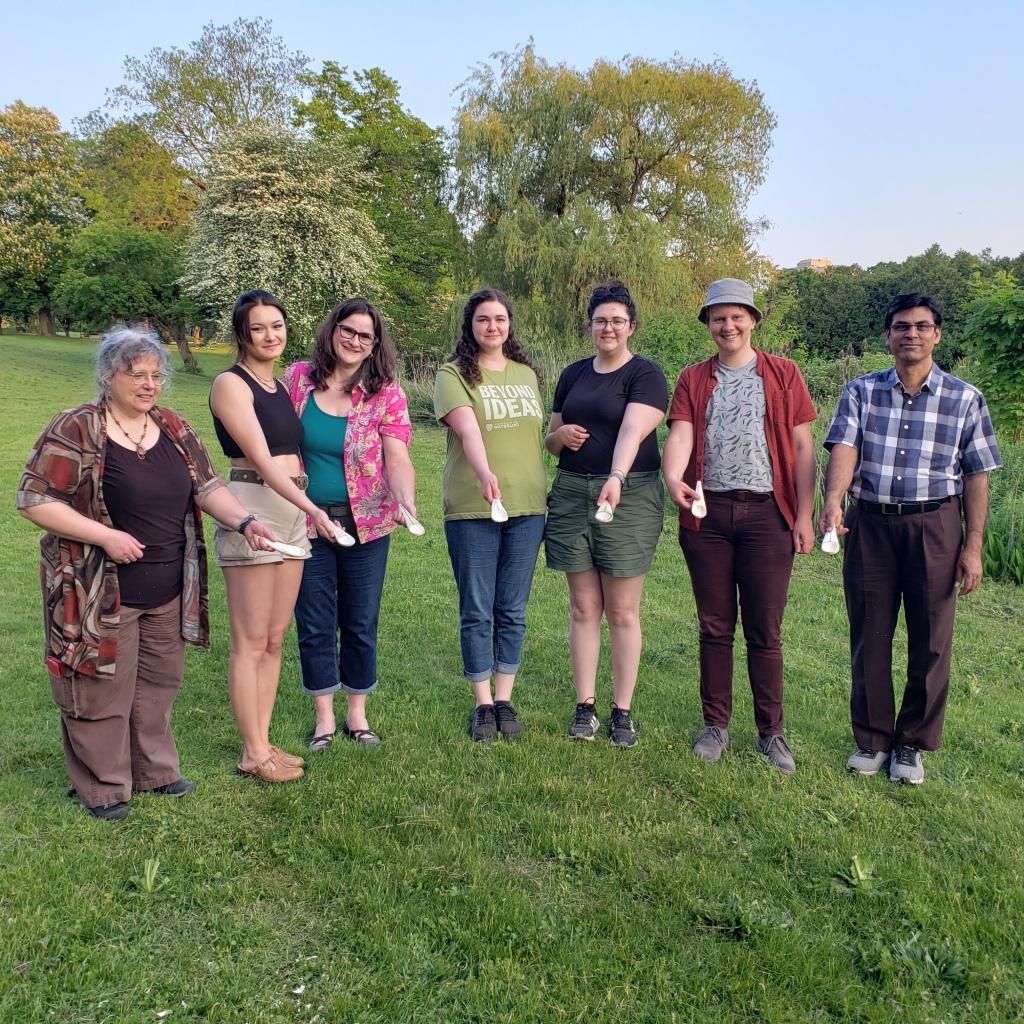

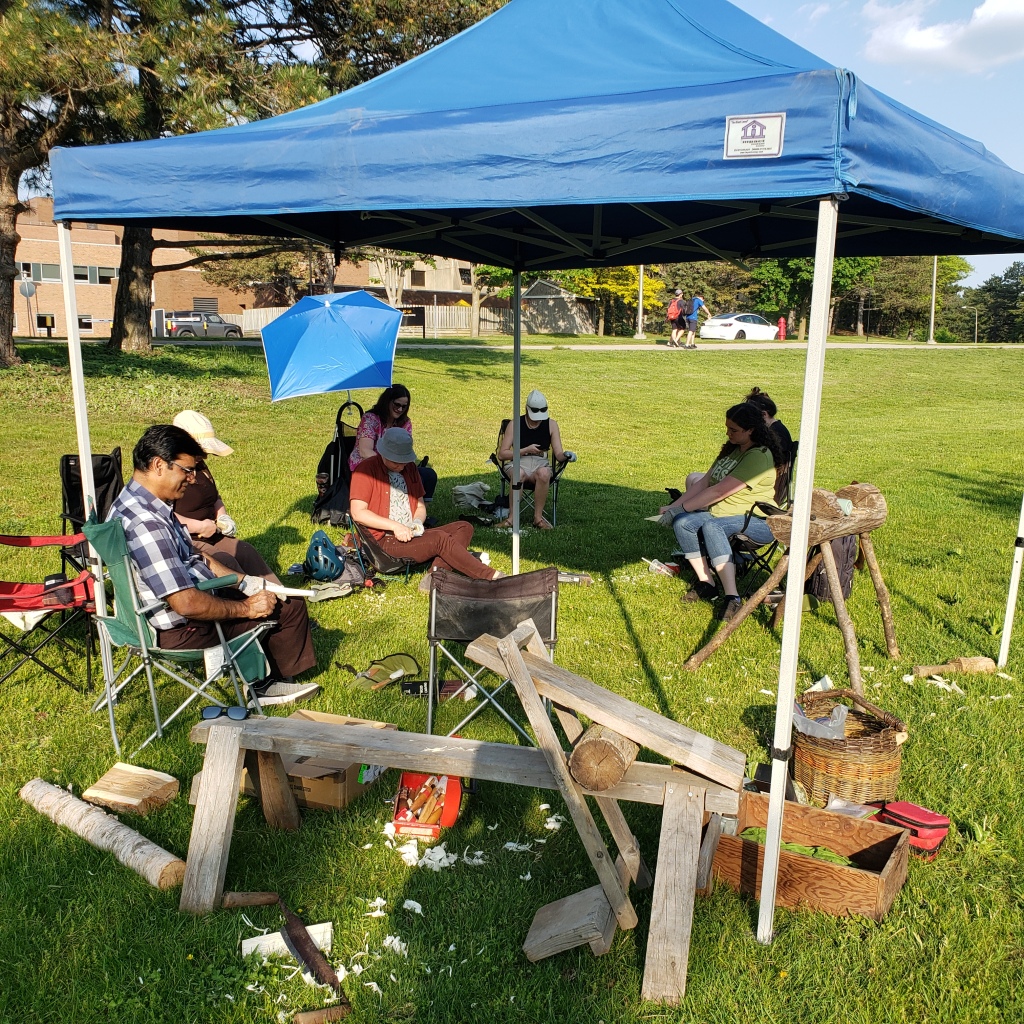
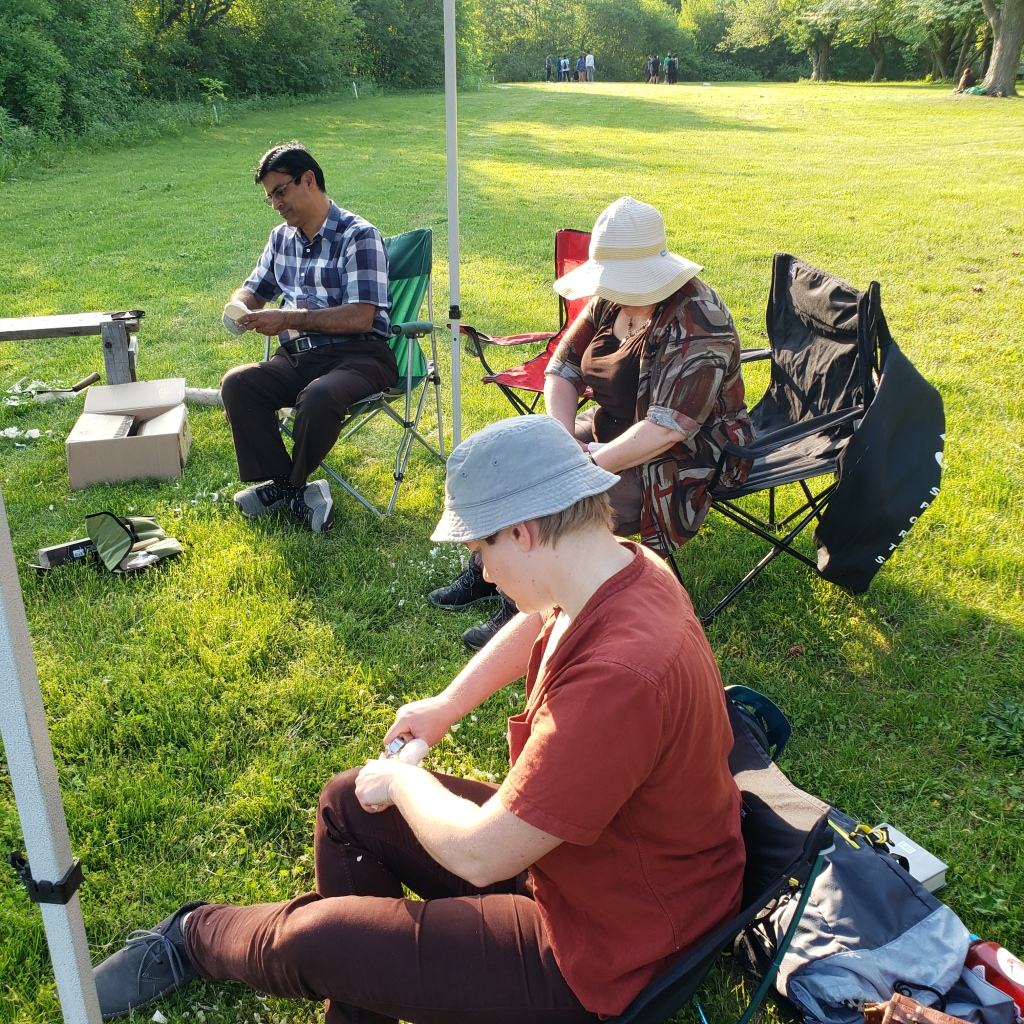
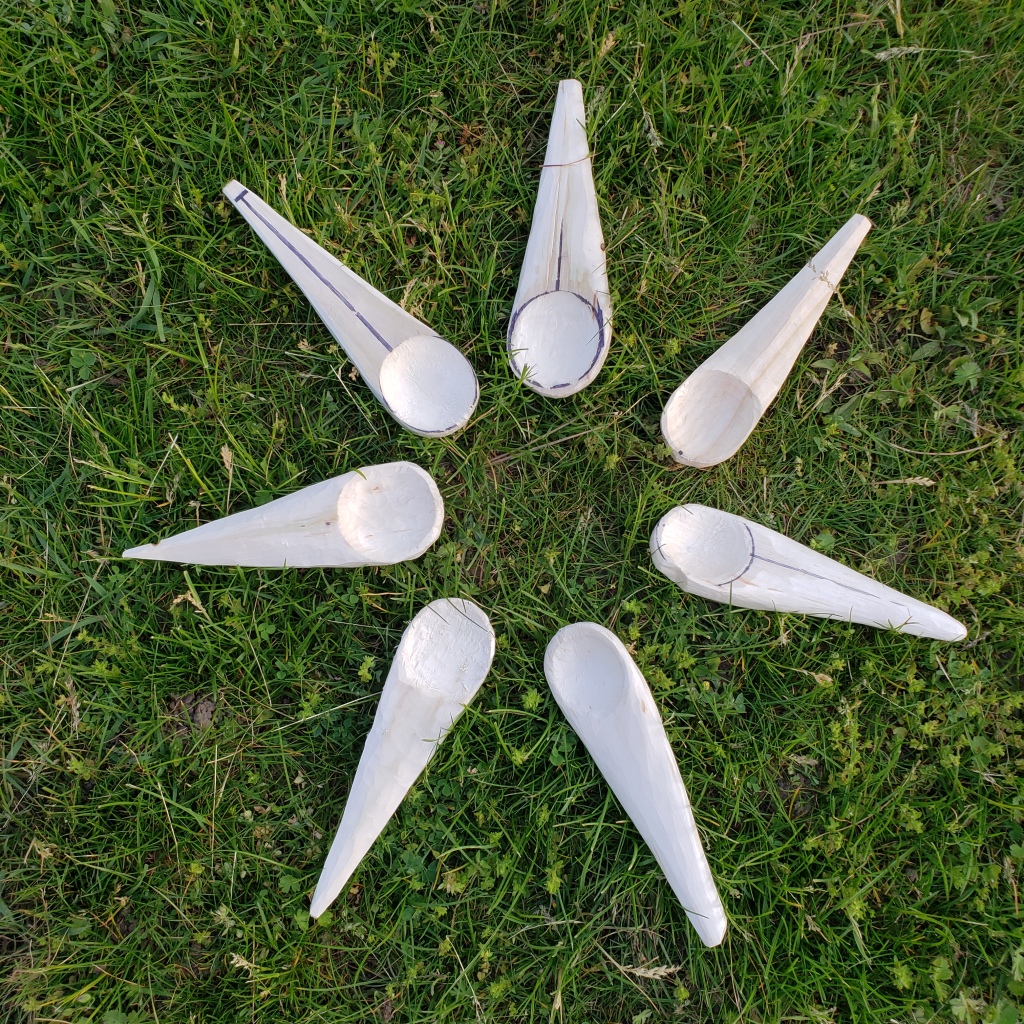

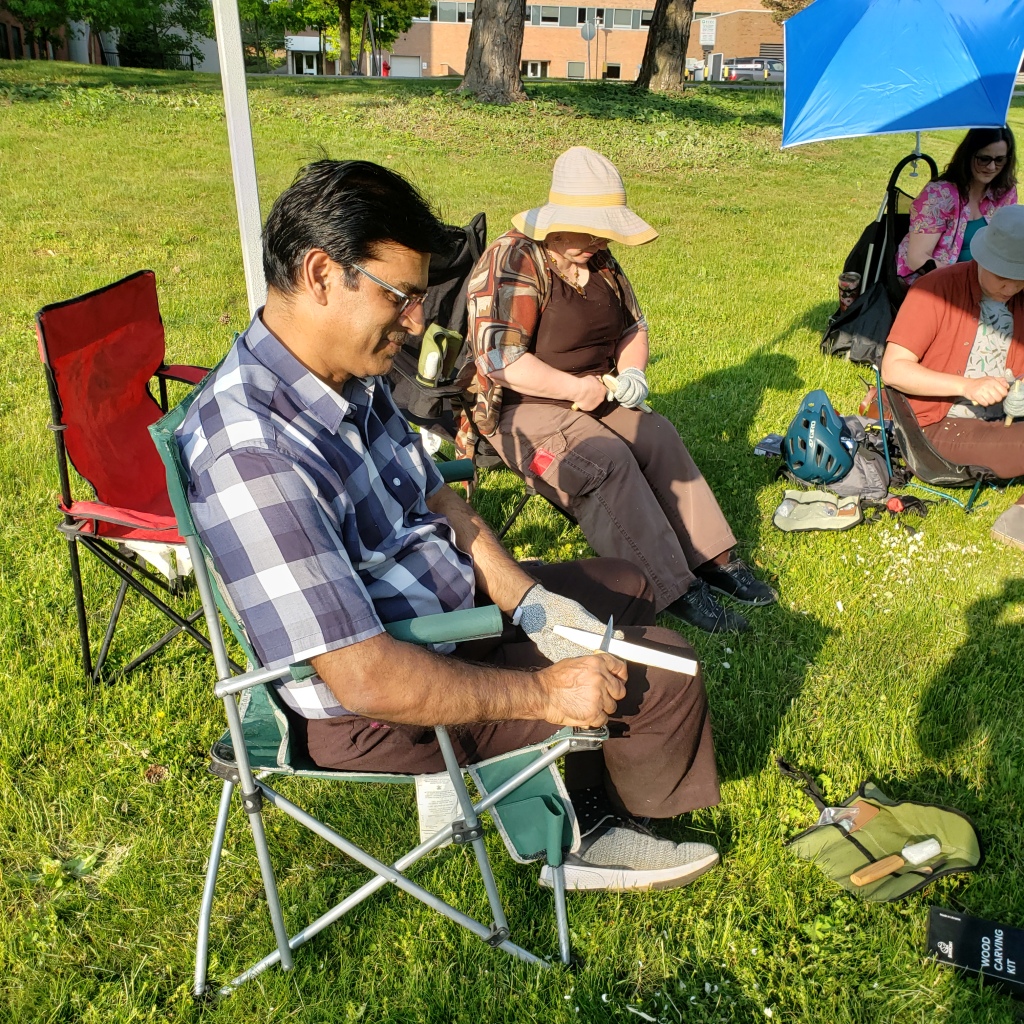



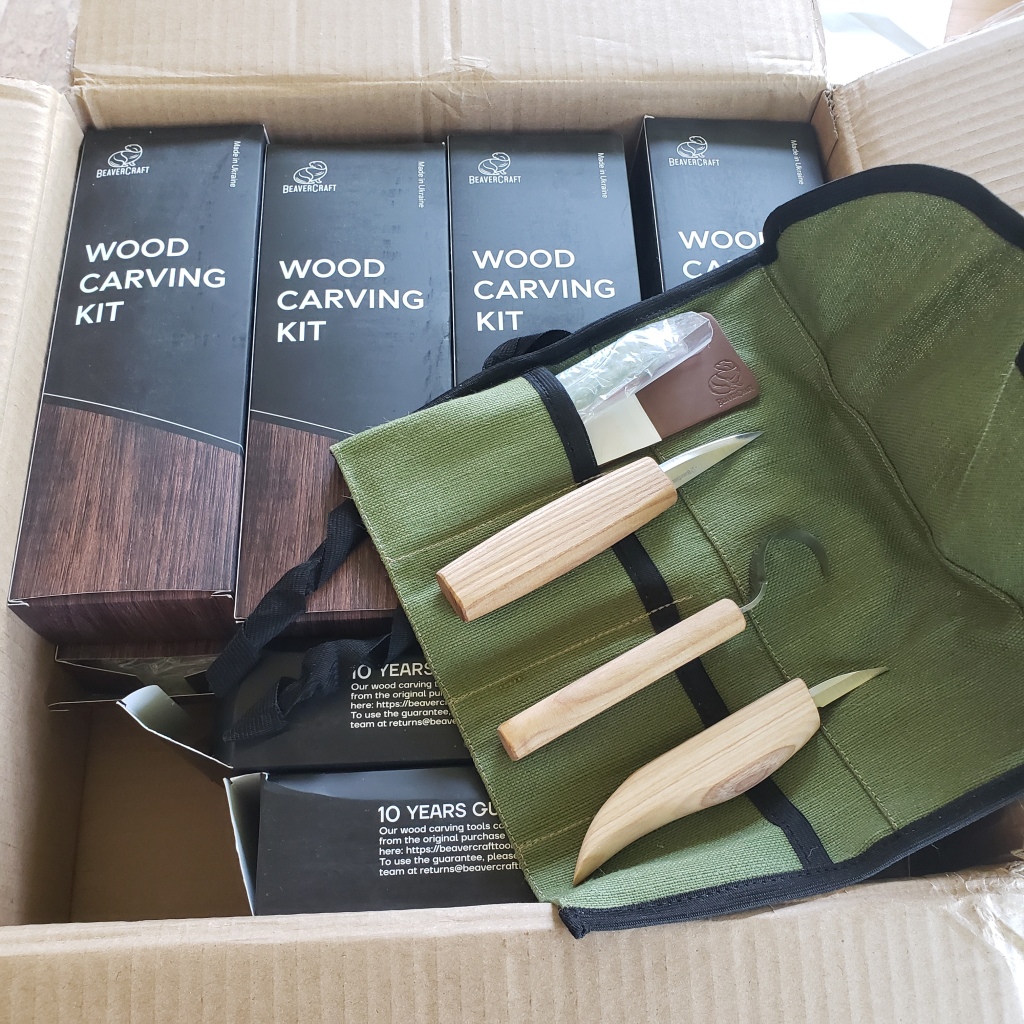
One response to “Reconnecting through land-based crafts and skills in socio-ecological systems”
Love this Jim, resonates so much with my experiences as a practitioner and participant, doctor and patient…and as a maker of spoons. The crumbling of the NHS has taken me away from carving for too long but reading your post and having lunch with Barn has rekindled my wish to take up my axe again 🙂